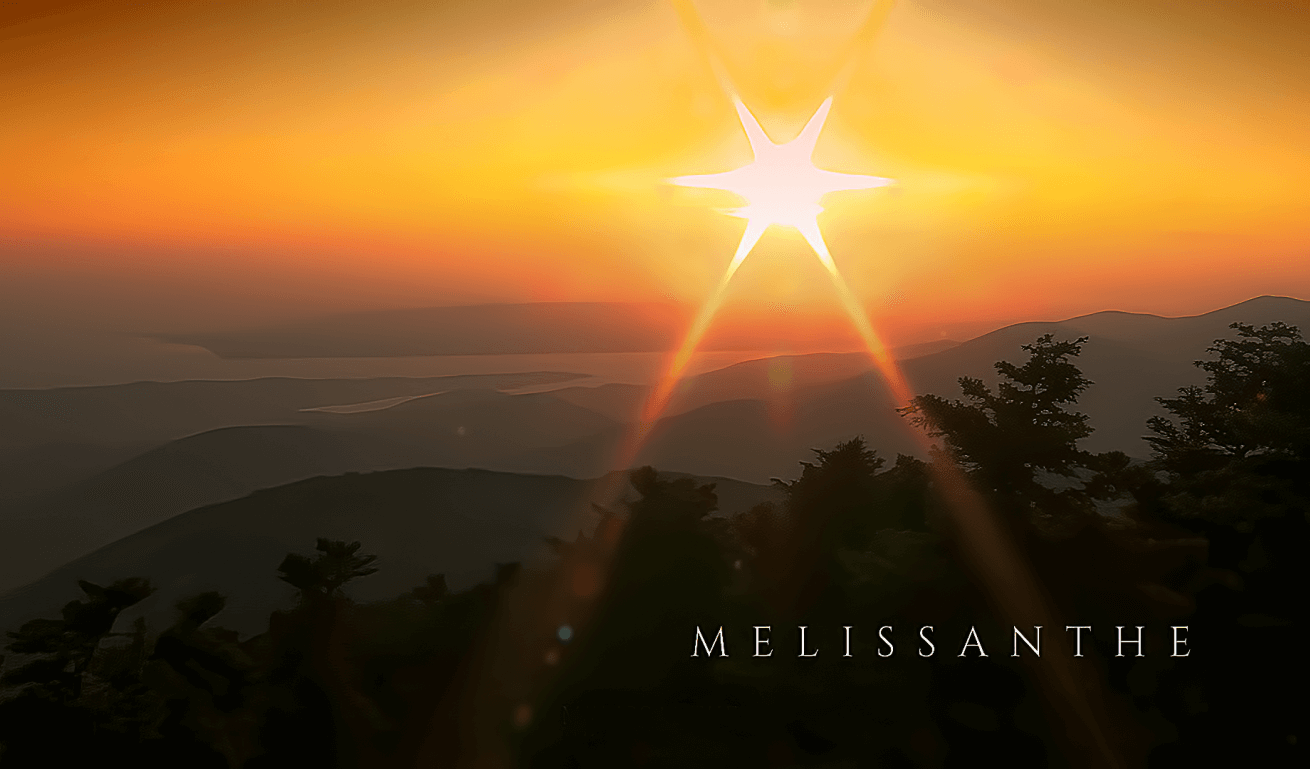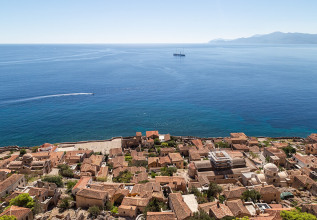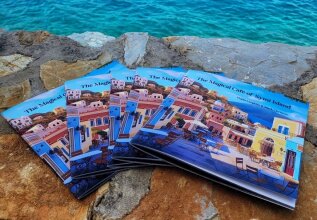6 MIN
INTERVIEWS
An interview with the film director Georgios Dimitropoulos

G. Dimitropoulos
The film tells the story of the ancient Greek nymph Melissanthe and her unmatched love for nature, the flowers and the bees. With this cinematic poem, we travel through time, learn, feel, experience the wisdom of ancient times, and are reminded that in all things of nature.. even with the smallest of the living creatures.. there is something of the marvellous. The allegories between the past and the present are ever relevant and powerful. The myth of “Melissanthe” is an inspired symbolism of true love, destiny, and harmonious coexistence between all living things. The film was shot entirely on the beautiful island of Kefalonia, raising awareness of our planet’s extraordinary biodiversity and the need for its protection. It is a cinematic documentary dedicated to the majesty and beauty of nature as told to us by ancient myths and legends, reminding us that we can live in harmony with nature just as our ancestors did for thousands of years.
What was the inspiration for the film?
G. Dimitropoulos
I'm particularly drawn to cinematic poetry based on ancient mythology and story-telling. There is something beautiful and elegant in experimenting with allegorical concepts, exciting the audience, and provoking creative thinking without preaching to the viewer, keeping them engaged and inspiring them to realize their own conclusions in their own way. The audience has indeed a very special relationship with the documentary form, and it is that challenge of keeping the right balance between documenting stories, and events, educating, inspiring and entertaining that empowers me as a filmmaker.
Have you created other similar films?
G. Dimitropoulos
"Melissanthe" is part of the documentary series "Biodiversity in Crisis". The pilot of the series was “Ersis”. A film dedicated to the unparalleled natural beauty of mountainous Greece, its myths, history, and legends. It was filmed at Lake Plastira, an area of special natural beauty with an impressive synergy of human intervention and nature. The cinematic documentary film is based on ancient legends, myths, and deities that deliver a sense of symbiosis and ethos. Our ancestors managed to co-exist in harmony with nature, and I explore that notion in my film through symbolism and timeless concepts that are as relevant as ever.
Who contributed to the film “Melissanthe”?
G. Dimitropoulos
There is an international team that works tirelessly to create these cinematic films. I teach filmmaking at a University and am fortunate to lead a passionate and talented team of filmmakers, research scholars and creatives. Giorgos Gerontopoulos wrote a beautiful poem based on the myth of Melissanthe. Actress Sabine Crossen narrated the poem and assumed the role of the ancient Greek Nymph with her wonderful voice.
What is the message of “Melissanthe”?
G. Dimitropoulos
The film’s main focus is observing how our ancestors managed to live in harmony with nature two and three thousand years ago. While we are technologically advanced, sometimes our arrogance and blind fate and reliance on technology make us ignore and forget our history. It seems that we have lost this harmonious coexistence of humans and nature.
Melissanthe, the nymph who protects blossoms, flowers and bees, was seduced by God Panas. The nymph fell in love with him, and in this allegory, God Panas is “us humans” today: our technology, noise, consumerism, and pollution.
The decrease in the world’s bee population is one of the negative side effects of our unsustainable need for industrial growth and thirst for economic power. Pollution, overharvesting, pesticides, and climate change are some of the factors responsible for significantly reducing the bee population across the planet. This is a problem without borders. Bees are the ones who pollinate and contribute to the maintenance of a healthy food chain. Bee pollination enables the reproduction of plants that feed billions of creatures. The film raises awareness of the issue through its allegories.
Melissanthe, the nymph who for centuries was thought to have jumped into the waters of Lake Melissani and died, was in fact, alive, sleeping at the bottom of the lake. At some point, she emerged from the waters to find her beloved bees.
The message of this film is that there is hope and solutions if we are humble enough to study our history, reflect, learn from past mistakes and determine our future in harmony with nature and our planet.
Has the film been submitted to any film festivals?
G. Dimitropoulos
The film participated in various international film festivals and has collected twelve awards in total. It received positive reviews from festivals specializing in nature and the environment. The positive feedback from critics motivates the whole team to continue creating new films highlighting Greece's rare beauty and history.
During our long and exciting film journey, we were asked many questions about Kefalonia island, Greece, and its myths and history. We realized that audiences see Greece not only as a beautiful all-year-round destination with outstanding natural beauty and unique biodiversity but also as a place with a long history and rich culture that is profoundly inspiring and fascinating.
It was exciting to hear film critics and members of the audiences alike express their desire to visit and explore Greece, not just for the sun and the sea and nature but for the whole experience of Greek history, mythology, culture, and arts.
The film’s messaging is so important. Have you considered screening your film at schools?
G. Dimitropoulos
We have been asked to screen the film in my university’s associated schools. The schools are interested in screening it because it is short in duration and is suitable for young children. It’s genuine, relevant and conveys an important message. Raising awareness and spreading the message of protecting our planet's environment and biodiversity has always been my goal and the film’s main focus. We would be delighted to enable and allow screenings of our documentary films in schools everywhere. If there are schools in Greece that would like to use the films, it would be a pleasure and a privilege to make this happen.
Are you planning to create new documentary films?
G. Dimitropoulos
We continue with the production of documentaries in various thematic fields in relation to ecology, technology, and science, as well as the production of dramatized documentaries (docudrama) with historical content. Such documentary films offer different perspectives, share knowledge and experiences, promote specific themes, regions, history, and nature, and raise awareness of emerging problems and possible solutions. The educational nature of documentary films deserves our wider support.
We would like to invite researchers, scholars, professionals, leaders, creatives and filmmakers to join our not-for-profit initiative and our international team to create content and tell stories that are worth telling, worth sharing and worth spreading!



